Invisalign in Israel
Search and Compare the Best Clinics and Doctors at the Lowest Prices for Invisalign in Israel

Find the best clinics for Invisalign in Israel
No pricing info available
Turkey offers the best prices Worldwide
Price: $ 45
From 122 verified reviews
fadi hreaz, 27 August 2020
Hospital gives reasonable treatment but poor sorting
Dr. Ratner's Dental Clinic, located in Arison New Hospitalization Building, Tel Aviv, Israel offers patients Invisalign procedures among its total of 55 available procedures, across 2 different specialties. Currently, there's no pricing information for Invisalign procedures at Dr. Ratner's Dental Clinic, as all prices are available on request only. All procedures and treatments are undertaken by the lead specialist at the Dental, and they are not accredited by any recognized accreditations institutes
- Home
- Israel
Compare Before & After Photos of _procedure_photos.phpInvisalign
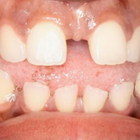
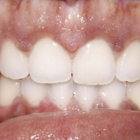
Front view
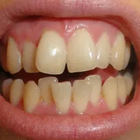
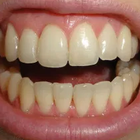
Front view
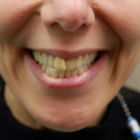
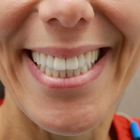
Front view
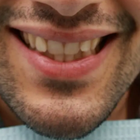
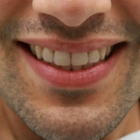
Front view
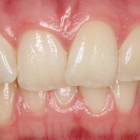
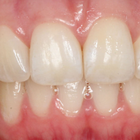
Front view
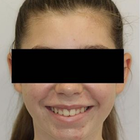
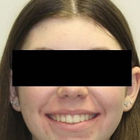
Front view
WHY US?
At Medijump, we're making medical easy. You can search, compare, discuss, and book your medical all in one place. We open the door to the best medical providers worldwide, saving you time and energy along the way, and it's all for FREE, no hidden fees, and no price markups guaranteed. So what are you waiting for?

Free

Best Price

Widest Selection

Risk-Free
What you need to know about Invisalign in Israel
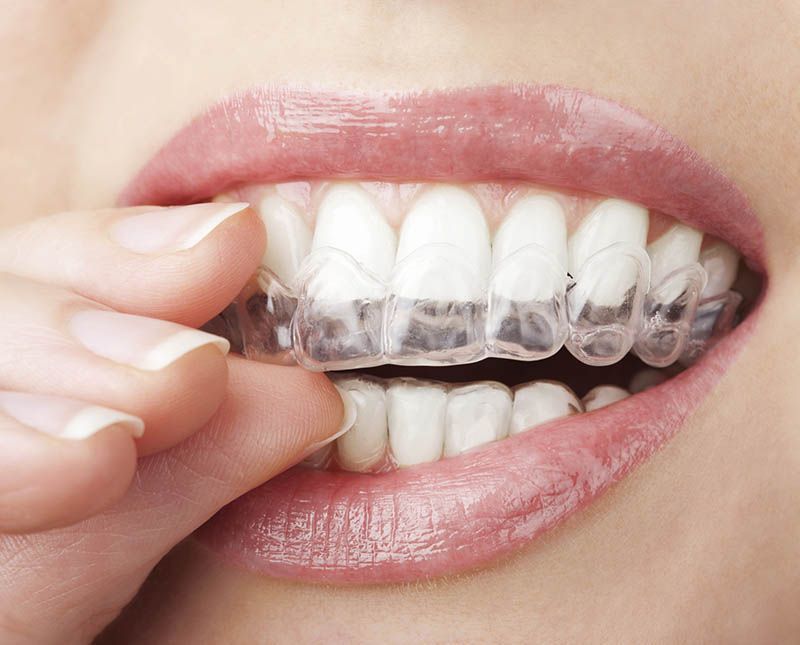
Also known as Clear-Aligner Treatment. Invisalign is the clear alternative to conventional dental braces used to adjust and straighten teeth, whilst simultaneously improving the patients smile. Through the use of virtually invisible and removable custom-made smooth plastic aligners, dentists are able to place the Invisalign over the teeth allowing for a gradual shift.
Invisalign manufacture the most well known of these clear aligners - the product comprises of a series of computer-generated aligners that are tailor-made to the patient’s teeth. By changing aligners every two to three weeks, the patient’s teeth will gradually move into the correct alignment. The aligners are easy to take off throughout the treatment, allowing the patient to brush and clean their teeth and eat as per normal. Compared to traditional braces, there are no metal brackets and they’re almost invisible to the eye.
This process can help to correct Spacing, Crossbite, Open Bite, Crowding, Excessive Overjet, and Deep Bite.
What is the cost of Invisalign in Israel?
The pricing for Invisalign within Israel hinges considerably on several aspects. These comprise the complexity of the patient's condition, the length of the treatment period, and the particular clinic offering the service. In general, the cumulative price remains in line with conventional brace treatment, thus positioning Invisalign as a financially feasible choice for many. Moreover, several dental insurance schemes offer coverage for Invisalign, mitigating the direct costs that the patient incurs.
Additionally, it should be noted that over time, Invisalign may prove to be a financially prudent choice. As it assists in rectifying improperly aligned teeth, it can deter future health complications associated with insufficient oral hygiene such as periodontal ailments or tooth decay, thereby saving you the expense of high-priced future dental treatments. Therefore, making an investment into Invisalign may play a part in promoting sustained dental wellness.
How Long Should I Stay in Israel for a Invisalign Procedure?
Since this is a non-invasive procedure, you may return to your holiday immediately after you have received your first set of clear aligners. However, strict compliance with your scheduled appointments with your orthodontist is essential. You will be required to see the dentist a few times during your stay so you should be aiming to stay in Israel for as long as possible, with 2 weeks being the absolute minimum. Subsequent appointments for check-ups and adjustments are typically scheduled every six weeks, but these are relatively quick visits.
What's the Recovery Time for Invisalign Procedures in Israel?
One of the primary benefits of Invisalign compared to other orthodontic methods is the notably short healing time. Typically, patients go through minimal or no pain during the treatment period. There might be a slight discomfort or pressure sensation in the initial days following the introduction of a new aligner, which is an indication that the aligner is effectively shifting your teeth to their correct position. Such discomfort generally settles after a few days.
It's significant to note that maintaining excellent dental hygiene and following the instructions given by your medical professional can considerably influence the successful recuperation and ultimate outcome of your Invisalign. This might entail properly looking after your aligners and regular dental appointments to track your progress.
What sort of Aftercare is Required for Invisalign Procedures in Israel?
Your treatment time will also be based on how much your teeth need to be properly aligned. Typically, patients are required to use Invisalign from ten to twenty-four months.
You should avoid hot drinks while wearing the Invisalign since it is made from clear plastic, it can be deformed by hot liquids, any flavored drink, any drink that contains sugar and/or acidic can form cavities and/or stain the Invisalign.
It’s best that you remove your aligners each time you eat, plaque and food particles can get trapped in your aligners. This will lead to the formation of cavities and bad breath, so it is very important that you brush your teeth after every meal.
What's the Success Rate of Invisalign Procedures in Israel?
Globally, Invisalign demonstrates a substantial level of success, and similarly, in Israel. Research indicates a large number of individuals experiencing significant enhancements in not only their smile but also their complete dental wellbeing post undergoing Invisalign. This procedure is additionally seen to positively influence self-worth and living standards. Nonetheless, the triumph of Invisalign is majorly dependent on the patient's dedication to adhering to the advised daily 20-22 hours of aligner use and consistently keeping up with scheduled dental visits. Since Invisalign can be removed anytime, your treatment’s success will rely heavily on how frequently you will use clear aligners
What Should You Expect Before and After the Procedure
Before your treatment, you will need to consult your orthodontist first. During your scheduled consultation, you will undergo a series of tests including x-rays, digital scans of your teeth or photographs to determine your diagnosis and plan your treatment procedure. The end-goal is for you to have a healthy bite, your top and bottom teeth must be proportioned properly.
Once all tests have been made, the specialized computer software will be used to design a plan on how your teeth will be moved from their current position to their best position possible. Invisalign is generated using a computer to make aligners especially designed for you and are clear colored. Your aligners will be changed every 2 to 3 weeks, which will allow your teeth to move into alignment. You will also be required to use it for twenty to twenty-two hours a day. Since Invisalign is non-surgical, anesthesia is not a requirement during the whole procedure.
Are there Alternatives to Invisalign Procedures in Israel?
While Invisalign is a great alternative to straighten your teeth and to have that perfect smile you are aiming for, some people may not be able to afford the treatment. The good news is that there is an alternative to clear aligners, such as Clear Correct - this also makes use of clear plastic aligners to straighten your teeth. The total cost for this type of aligner is usually cheaper than Invisalign. However, Invisalign uses top-notch planning software to determine your treatment plan, making it much easier to attain a successful result.
What are the Potential Risks of Invisalign?
Although Invisalign is typically deemed safe, comparable with most medical procedures, it is not completely devoid of potential complications. Frequently reported challenges entail discomfort, pronounced when transitioning to fresh aligners, and it may transiently influence your verbal communication. Also, there is a susceptibility to dental caries and periodontal disease if appropriate oral care is neglected throughout the procedure. Although infrequent, the effectiveness of Invisalign might not match up to the conventional braces in extremely difficult cases.
Should you get Invisalign or Braces?
Invisalign has become a very popular alternative to metal brackets. Unlike metal braces that stay cemented onto your teeth for a long period of time. Invisalign is a series of detachable clear plastic aligners that guide your teeth into its proper position and alignment. Other advantages of the use of Invisalign are:
- Comfort - since it is made of thin and flexible plastic, it will not irritate the soft tissues in your mouth unlike metal braces and its metal wires.
- Better oral hygiene and Greater Dietary choices - At any stage of the treatment you can remove the aligners to allow yourself to eat and also to Brush your teeth at least twice daily.
- Discreet look - Invisalign is an invisible plastic material that will go unnoticed on your teeth once you use it.
- Teeth-Grinding Protection - it can also function as a nightguard that can protect your teeth from excessive grinding and clenching habits.
One important thing to know is that, although Invisalign is one alternative option to traditional braces, it is not for everyone. A clear aligner is usually used on patients who have moderately crowded teeth or have minor spacing issues on their teeth. Furthermore, because it is custom-built to be a tight fit, it is best used for adults or teens. Patients who have more serious spacing problems and crowded teeth, including patients who have severe overbites, under-bites or cross-bites will require a more intricate treatment.
Invisalign v's Conventional Braces
- Invisalign can be worn with more confidence due to the difficulty in seeing them.
- Invisalign feels more comfortable, with braces irritating and sometimes even chafing the inside of the mouth.
- Invisalign is perfect for athletes, who are able to remove them during sport.
- Braces are semi-permanent, whereas Invisalign can be removed at any time, so fewer trips to the dentist are required when compared to Invisalign.
- Braces are quicker to close gaps or straighten teeth.
- Braces can make some foods difficult to eat, whereas, with Invisalign, they can be removed whilst eating tricky meals.
Whilst the information presented here has been accurately sourced and verified by a medical professional for its accuracy, it is still advised to consult with your doctor before pursuing a medical treatment at one of the listed medical providers
No Time?
Tell us what you're looking for and we'll reachout to the top clinics all at once
Enquire Now

Popular Procedures in Israel
Prices Start From $1

Prices Start From $1

Prices Start From $1

Prices Start From $48

Prices Start From $1

Prices Start From $1

Prices Start From $1

Prices Start From $11

Prices Start From $1

Recommended Medical Centers in Israel for Invisalign

- Interpreter services
- Translation service
- Religious facilities
- Medical records transfer
- Medical travel insurance
- Health insurance coordination
- TV in the room
- Safe in the room
- Phone in the room
- Private rooms for patients available

- Interpreter services
- Translation service
- Religious facilities
- Medical records transfer
- Medical travel insurance
- Health insurance coordination
- TV in the room
- Safe in the room
- Phone in the room
- Private rooms for patients available

- Interpreter services
- Translation service
- Religious facilities
- Medical records transfer
- Medical travel insurance
- Health insurance coordination
- TV in the room
- Safe in the room
- Phone in the room
- Private rooms for patients available

- Interpreter services
- Translation service
- Religious facilities
- Medical records transfer
- Medical travel insurance
- Health insurance coordination
- TV in the room
- Safe in the room
- Phone in the room
- Private rooms for patients available

- Interpreter services
- Translation service
- Religious facilities
- Medical records transfer
- Medical travel insurance
- Health insurance coordination
- TV in the room
- Safe in the room
- Phone in the room
- Private rooms for patients available

- Interpreter services
- Translation service
- Religious facilities
- Medical records transfer
- Medical travel insurance
- Health insurance coordination
- TV in the room
- Safe in the room
- Phone in the room
- Private rooms for patients available

- Interpreter services
- Translation service
- Religious facilities
- Medical records transfer
- Medical travel insurance
- Health insurance coordination
- TV in the room
- Safe in the room
- Phone in the room
- Private rooms for patients available

- Interpreter services
- Translation service
- Religious facilities
- Medical records transfer
- Medical travel insurance
- Health insurance coordination
- TV in the room
- Safe in the room
- Phone in the room
- Private rooms for patients available

- Interpreter services
- Translation service
- Religious facilities
- Medical records transfer
- Medical travel insurance
- Health insurance coordination
- TV in the room
- Safe in the room
- Phone in the room
- Private rooms for patients available
Invisalign in and around Israel
About Israel
Israel celebrated 70 years of independence in 2018 - in what is a truly ancient land. The world’s only Jewish and democratic state is home to sites sacred to Judaism, Christianity, and Islam. While these holy places are truly unique attractions, there is more to Israel than religious heritage and complex politics. Jerusalem is the official capital and holy city to three world religions, previously mentioned, while Tel Aviv brims with beaches and bustles with urban vitality. Then there’s the Dead Sea and Masada, the stark, stunning Negev, and fertile Galilee. The number of museums and cultural institutions per relative area is larger in Israel than anywhere in the world.
Home to more than 30 JCI accredited facilities, medical tourists visit Israel for a variety of procedures, but particularly dental and tertiary care. Invisalign procedures are also a popular choice.
Popular Parts of Israel
Israel is an alluring destination for those who want to appreciate its astonishing religious sites, stunning natural beauty, and remarkable historic relics.
- Tel Aviv is the economic and technological center of Israel, with a population of over 400,000; it is the most populous city in the country. Located on the Mediterranean coastline, the city offers sunny beaches for any sun-chaser. The city has impressive architecture and has a modern cosmopolitan landscape. Tel Aviv Museum of Art houses works by international artists. In addition, it has a nonstop nightlife with a huge party option to fit every taste.
- Haifa is the country’s third-largest city and it is one of Israel’s high-technology centers as well as a busy working port. The city may have an industrious image, but with a number of museums, gardens, and shrines, it is an amazing place to travel to. The Baha’i Gardens are possibly the most popular attraction as it is the final resting place of the prophet-herald of the Baha’i Faith. Tourists can have a bird’s eye view from the platform at the top or take a free Panorama Tour.
- Eilat is located at the southernmost tip of Israel and is the only Israeli city on the Red Sea. Families come to the city to have a good time on the beach and party-goers come for its all-night parties. The turquoise waters invite visitors to snorkel, scuba dive, or swim. It is recommended to stay in an Oasis at night to get a chance to stargaze under a clear desert night sky. During the day, visit the Eilat Mountains to have a beautiful view of an ancient desert.
- Tsfat or Safed is a quaint mountain-top city surrounded by pine forests. Located at an elevation of 900 meters, the city enjoys warm summers and cold winters. It is a popular summer holiday resort frequented by Israelis and foreign visitors. Here, tourists will find synagogues, art galleries, and unique crumbling stone houses.
- Jerusalem is one of the oldest cities in the world and three major Abrahamic religions (Judaism, Islam, and Christianity) considered it a holy city. Even though it has been destroyed and rebuilt over thousands of years, the city manages to endure its spiritual magnetism. It is overflowing with holy sites, diversity, and layers of history.
Weather and Climate in Israel
Israel is a year-round destination but the temperatures in the city vary widely. The coastal areas such as Tel Aviv and Haifa experiences a typical Mediterranean climate where the winters are rainy and the summers are hot. The area around Northern Negev has a semi-arid climate with hot summers and cool winters. The Southern Negev has a desert climate with extremely hot summers and mild winters. On the other hand, mountainous regions have pleasant summer and cold winters with a little snowfall.
Generally, the winter months from November to March are the coldest months in the country. When mountainous areas such as Jerusalem receives snowfall, the coastal areas experience heavy rainfall. Summer starts in June and ends in August and it is the hottest season in every part of the country, especially in the desert area where the heat can be overbearing. The seasons of spring and autumn have the best weather, with pleasant temperatures and fewer rainy days.
Getting Around in Israel
Ben Gurion Airport is the main gateway to Israel and it is the busiest airport in the country located 20 kilometers southeast of Tel Aviv and 45 kilometers northwest of Jerusalem. The airport is ranked among the five best airports in the Middle East. It serves both domestic and international flights to and from numerous major cities around the world. There is two main passenger terminal at this airport. Terminal 1 serves domestic flights and international budget airlines such as EasyJet and Vueling, while Terminal 3 serves international flights.
Since the distance between one city to another is relatively short, getting around Israel is easy. The quickest and most convenient way is by domestic flights. The tickets are not very expensive and deals are often available online. Sometimes a one-way ticket can cost as little as 89 NIS (25 USD). Buses are also convenient but can be slow during traffic jams. Buses connecting Jerusalem, Tel Aviv, and Haifa depart very frequently. A one-way ticket from Tel Aviv to Jerusalem is around 25 NIS (7 USD). Israel’s main bus company is the Egged Bus Company. Trains are also available and very comfortable. They are a lot faster than the bus but the cost can be higher.
Taxis are widely available and can be hailed directly from the streets. Although most taxis are metered, you can agree on a fixed rate and be aware that some drivers are known to overcharge tourists, so you should insist on using the meter and make sure that it is reset to the base fare after you get in. The base fare is normally around 12.30 NIS (3.5 USD). There is also a shared taxi van known as Sherut. It is a good option to travel between Tel Aviv and Jerusalem or Tel Aviv and Haifa.
Tourist Visas in Israel
All visitors must hold a passport valid for at least six months after the date of departure from Israel. Citizens of 99 countries including the European Union, Canada, Singapore, Russia, and the United States do not require a visa to enter the country for up to 3 months. Nationals not listed on the visa exemption agreement need to obtain a visa and should contact their nearest embassy of Israel. Citizens of 25 countries require a confirmation from the Israeli government before a tourist visa is issued.
Additional Information
- Local Currency: The currency is the New Israeli Shekel (NIS) and 1 USD will get you 3.28 NIS.
- Money & Payments: ATMs that accept international cards are widespread (mostly Visa and MasterCard), except at border crossings with Egypt and Jordan. Credit cards are widely accepted and tipping is common but normally not expected.
- Local Language: The official language is Hebrew and Arabic has a special status under Israeli law as a semi-official language. Russian is spoken by around 20% of the population. Most of the population can speak English fairly well as it is required in schools and universities.
- Local Culture and Religion: More than 70% of the population follows Judaism. There are small groups of Muslims, Christian, and Druze. Muslims are the largest minority group in the country.
- Public Holidays: The country celebrates major national holidays as well as Jewish holidays such as Independence Day, Jerusalem Day, and Hanukkah.
Popular Searches
- Plastic Surgery in Thailand
- Dental Implants in Thailand
- Hair Transplant in Thailand
- Breast Augmentation Thailand
- Gastric Sleeve in Thailand
- Gender Reassignment Surgery in Thailand
- Laser Hair Removal in Bangkok
- Botox in Bangkok
- Dermatology in Bangkok
- Breast Augmentation in Bangkok
- Coolsculpting in Bangkok
- Veneers in Turkey
- Hair Transplant in Turkey
- Rhinoplasty in Turkey
- Stem Cell Therapy in Mexico
- Rhinoplasty in Mexico
- Liposuction in Mexico
- Coolsculpting in Tijuana
- Rhinoplasty in Korea
- Scar Removal in Korea
- Gastric Sleeve in Turkey
- Bone Marrow Transplant in India
- Invisalign in Malaysia
- Plastic Surgery in the Dominican Republic
- Tummy Tuck in the Dominican Republic
- Plastic and Cosmetic Surgery in Poland
- Rhinoplasty in Poland
- Hair Implant in Poland
- Dental Implants in Poland
- IVF in Turkey

